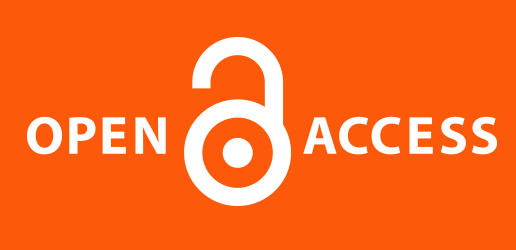
Theoretical innovation and practical path of professional development of preschool integrated education teachers in Guangdong Province, China
摘要
This study focuses on preschool inclusive education teachers in Guangdong Province, China, exploring theoretical innovations and practical pathways for their professional development. Through questionnaire surveys (N=144) and empirical analysis, significant gaps were identified in teachers’ curriculum design capabilities and special education knowledge, with factors such as professional experience and training resources significantly impacting their competencies. Grounded in ecosystem theory, the research constructs a three-dimensional “theory-practice-technology” development model. It proposes intelligent empowerment pathways (AI-assisted diagnosis, VR virtual training) and a collaborative cultivation system (university-kindergarten-special education institution linkage, micro-certification mechanisms), validated through regional pilot projects in Chengdu. The study highlights structural contradictions (e.g., imbalanced student-teacher ratios) and institutional barriers (e.g., lack of certification systems) as key constraints. Policy recommendations include legislative guarantees for professional standards and establishing dedicated funding. Future research directions involve interdisciplinary applications of neuroscience, localization of international practices, and deeper integration of intelligent technologies.
1. Introduction
1.1 Research background and significance
Under the international trend of inclusive education and the impetus of our country's special education policies, preschool integrated education plays a foundational role in the development of children with special needs. As a pilot region for these policies, Guangdong Province faces particularly prominent challenges in teacher professional development: teachers generally lack sufficient knowledge in special education, have limited differentiated teaching strategies, and pay insufficient attention to the individual needs of children with special needs. At the same time, structural contradictions and institutional barriers further exacerbate the difficulties in educational practice. This study is based on the characteristics of preschool integrated education, systematically constructing a theoretical model for teacher professional development. The aim is to break through the three-dimensional dilemma of "philosophy-capability-support," providing a new perspective for improving the theoretical system of special education, which has significant practical implications for enhancing the quality of educational equity. This study will focus on the characteristics of preschool integrated education, integrating multidisciplinary theories to systematically explore the connotations, structure, and influencing mechanisms of teacher professional development, building a theoretical model for teacher professional development, and offering a new perspective for improving the theoretical system of preschool integrated education[1].
1.2 Research problems and innovations
This study focuses on the professional development of teachers in inclusive early childhood education, with an emphasis on the following core issues: How can teachers' professional competencies align with teaching needs in special education settings? This is explored from three dimensions: First, what core competencies and skill structures should teachers possess; second, what are the key factors that constrain teacher professional development; third, how to build an effective support system to promote teacher professional growth[2].
The innovation of this study is reflected in two aspects: First, the breakthrough in theoretical perspective. Based on the framework of ecosystem theory, it systematically analyzes the mechanisms influencing teacher development from three levels—micro (individual teachers), meso (schools and communities), and macro (policies and culture)—constructing a dynamic development model. This research approach transcends the limitations of traditional single-dimensional perspectives, providing a more comprehensive revelation of the internal logic and external drivers of professional growth for teachers.
2 Theoretical framework and literature review
2.1 International cutting-edge theory
Inclusive Education Theory: Since the Salamanca Declaration was proposed in 1994, the concept of inclusive education has become a crucial guide for the global development of special education. This theory advocates that education should embrace all children, meeting their diverse needs through the creation of inclusive environments. At its core, it emphasizes the three-dimensional realization of equality, inclusion, and participation. In the context of preschool inclusive education, inclusive education requires providing special needs children with opportunities to participate in general education activities. This is achieved through curriculum adjustments, individualized education plans (IEPs), and the creation of social scenarios, promoting the joint development of special needs children and typical children. This philosophy places dual demands on teachers: they must possess the ability to teach differentiated instruction and build a collaborative support network involving multiple parties[3].
Social Support Theory: Constructing a Four-Dimensional Support System of "Teacher-Child-Family-Community." Based on the Social Support Theory, this study has developed a four-dimensional support model of "Teacher-Child-Family-Community." The teacher dimension emphasizes the construction of professional communities and resource acquisition; the child dimension focuses on peer relationship building and emotional support; the family dimension highlights the home-school collaboration mechanism; and the community dimension emphasizes resource integration and cultural recognition. This theory provides a systematic solution for teacher professional development, helping to alleviate occupational burnout and enhance teaching effectiveness by optimizing the structure of the support network[4].
2.2 Local practice innovation
Cultural Adaptability Theory: This study combines the traditional Chinese educational concept of "teaching according to individual aptitude" with modern inclusive education practices, proposing a path for cultural adaptability development. The theory emphasizes that teachers should flexibly apply strategies such as tiered instruction and gamified learning based on the unique abilities of special needs children (such as cognitive levels, language development, and emotional management). This practice innovation, grounded in cultural genes, not only maintains the continuity of educational traditions but also enhances the local adaptability of special education programs[5].
Dynamic Competency Theory: Based on the theory of dynamic competency, this study has distilled a three-dimensional competency matrix for teacher professional development: assessment capability (application of developmental evaluation tools), intervention capability (implementation of differentiated teaching strategies), and collaboration capability (communication and coordination among multiple stakeholders). This matrix breaks away from traditional static competency views, emphasizing that teachers must continuously reconstruct their knowledge systems in complex educational contexts. Through the dynamic cycle of "assessment-intervention-collaboration," they achieve spiral enhancement of professional capabilities. This competency model provides an operational practical framework for teacher professional development[6].
3 current situation analysis and challenges
3.1 Teacher Professional Quality Survey: An empirical study based on 144 questionnaires
To gain a deeper understanding of the current professional competence of teachers in inclusive early childhood education, this study employed a questionnaire survey method to investigate the implementation of inclusive early childhood education among 144 kindergarten teachers in Guangdong Province, China. The selection of research variables was based on an in-depth review of relevant literature in the field of inclusive early childhood education, covering core factors such as professional attitudes and motivations, willingness for professional development, professional competence, occupational stress, and support and policies. To ensure theoretical rigor, this study used a structured questionnaire, including a Likert 5-level scale measurement tool. The survey participants came from different regions and types of kindergartens, ensuring broad representativeness. The reliability analysis results showed that the overall Cronbach α coefficient ranged from 0.923 to 0.953, with all factors demonstrating high internal consistency, ensuring the stability of the measurement tool. The KMO test result (0.862) and the Bartlett's measure of multivariate skewness (p <0.01) confirmed that the questionnaire was suitable for factor analysis. After rotation, the factor analysis revealed five main factors explaining 65.784% of the variance, further confirming the structural validity of the questionnaire. Data analysis methods included frequency analysis, ANOVA, regression analysis, and other statistical techniques, revealing key influencing factors of teacher professional development from various perspectives.
Through the statistical analysis of questionnaire data, descriptive statistics, correlation analysis and regression analysis are used to reveal the advantages and disadvantages of teachers in the implementation process of preschool integrated education, which provides a solid data basis for further in-depth analysis of teachers' professional quality.
| The KMO and Bartlett test | ||
| KMO price | 0.862 | |
| Bartlett Spherical test | Approximate chi-square | 5020.631 |
| df | 1035 | |
| p price | 0 | |
Figure 1: Validity analysis
| factor | Cronbach α Coefficient |
| Overall reliability | 0.923 ~ 0.953 |
| vocational ability | 0.951 |
| Support and policy | 0.953 |
| Professional attitude and motivation | 0.923 |
| Professional development willingness | 0.921 |
| occupational stress | 0.882 |
Figure 2: Reliability analysis
3.2 Key findings: weak curriculum design ability and significant knowledge gap in special education
The survey results show that the overall level of preschool teachers implementing inclusive education is above average, but there are significant shortcomings in curriculum design and special education knowledge. In terms of curriculum design ability, teachers scored an average of only 3.2 out of 5 (full marks), indicating substantial room for improvement in setting course objectives, selecting content, and applying teaching methods. Specifically, this manifests as unclear course objectives, lack of consideration for individual differences among special needs children; unscientific and non-targeted selection of course content, failing to meet the learning needs of special needs children; and a single teaching method that fails to fully engage these children's enthusiasm for learning.
In terms of special education knowledge, teachers have a significant knowledge gap. Many teachers have limited understanding of the psychological characteristics, behavioral traits, and educational methods for children with special needs, lacking systematic theoretical knowledge and practical skills in special education. This results in teachers often feeling overwhelmed when facing educational challenges for these children, unable to provide effective educational support.
In addition, the survey found that factors such as teaching experience, special education background, and inclusive education experience significantly impact teachers 'professional competence. Teachers with less than 10 years of teaching experience, those who graduated from or received training in special education, and those with experience teaching children with special needs tend to provide higher quality inclusive education. This indicates that professional training and practical experience play a crucial role in enhancing teachers' professional competence.
4 Innovative development path
4.1 Intelligent and professional development model
AI-assisted Diagnostic System: Based on deep learning, the AI system can collect and analyze children's behavioral data in real time, accurately identifying specific characteristics of special needs children (such as autism tendencies, attention deficits, etc.), providing diagnostic recommendations and personalized teaching plans. This technology overcomes the limitations of traditional manual observation, offering scientific evidence for teachers' decision-making through intelligent analysis, while also reducing the workload of educators and promoting the intelligent transformation of special education assessment.
Virtual Reality Training Platform: VR technology constructs immersive integrated educational scenarios, supporting teachers in practicing classroom management and special child intervention skills within a virtual environment. The system provides real-time feedback and improvement suggestions through behavioral data tracking and AI analysis. This hybrid training model breaks the limitations of time and space, effectively enhancing teachers' ability to handle complex teaching situations, offering new solutions for professional practice capability development.
4.2 Collaborative innovation training system
Constructing a Tripartite Linkage Mechanism Among Universities, Kindergartens, and Special Education Institutions: Universities are responsible for integrating educational theory teaching and research innovation. Kindergartens provide practical scenarios and feedback on needs. Special education institutions offer technical support. Through joint course development, shared internship bases, and collaborative research projects, this mechanism achieves a closed-loop cultivation of "theory-practice-technology," addressing the issue of disconnection between theory and practice in traditional training models.
Micro Certification System: Establish a specialized certification standard for integrated education, covering core dimensions such as conceptual understanding, teaching implementation, and assessment intervention. Teachers can independently choose capability modules to complete online learning, practical assessments, and case reviews, earning micro certification certificates through diverse evaluations. This system breaks the singularity of traditional title evaluation, using ability-oriented approaches to stimulate teachers' intrinsic motivation for professional development, providing a visual path for their career growth.
5 Practical cases and results
5.1 Regional pilot experience
Chengdu model: Chengdu builds a collaborative network of "universities, kindergartens and special education institutions" to establish a community of teacher development. The community promotes the integration of theory and practice through regular joint teaching research, thematic training and other activities.
At the same time, the "1+N" paired assistance model is implemented, with high-quality kindergartens leading the establishment of support alliances. For example, the San You Kindergarten Education Group has signed agreements with several under performing kindergartens, sharing resources through methods such as sending teachers to rural areas and exchanging faculty. Teachers from the assisted kindergartens can regularly visit model kindergartens to observe integrated teaching and participate in educational research activities.
Data Validation: Through the investigation and data analysis of the pilot program in Chengdu, it was found that the teacher development community and the "1+N" pairing assistance model have achieved significant results. Three years of tracking data show that teachers' professional capabilities have improved by 27%, and their knowledge of special education and course design skills have significantly enhanced. Parent satisfaction with inclusive classes has reached 89%, and the excellent rate of social development assessments for children with special needs has increased by 34%. This model has formed replicable experiences, promoting balanced educational development in the region.
5.2 Application of technological innovation
Smart Bracelet Monitoring System: This system collects physiological data (such as heart rate and skin electrical response) of special children in real-time using multi-modal sensors. It combines AI algorithms to identify emotional states (such as anxiety or depression). When abnormalities are detected, it automatically triggers a three-level warning mechanism: ① sending alerts to teacher terminals; ② generating personalized intervention plans (such as adjusting teaching activities); ③ recording trends in emotional changes. The system supports teachers in optimizing teaching strategies based on data analysis. For example, after discovering through the system that autistic children tend to become anxious during morning group activities, one kindergarten reduced activity duration by 20% and added an optional selection phase.
Block chain Credit Bank: A digital platform for teacher professional development built on block chain technology, capable of recording 32 types of professional activities including training, research, and practice, generating an unalterable learning trajectory certificate. The system facilitates cross-regional credit recognition, allowing teachers to participate in title evaluations with micro-courses such as "Integrated Education Curriculum Design." The intelligent analysis module generates a capability map based on learning records, automatically recommending development paths. For example, after diagnosing a teacher's weakness in "Special Children Behavior Intervention," it would recommend a training program consisting of 12 hours of online courses + 3 on-the-job practices.
6 Challenges and countermeasures
6.1 Existing obstacles
Conceptual Lag: Most teachers still hold the mindset of "isolated education." Surveys show that many teachers believe special needs children should be concentrated in specialized educational institutions. This traditional perception leads to negative behaviors in teaching, such as deliberately reducing classroom participation opportunities for special needs children and neglecting home-school communication. Conceptual biases not only hinder the advancement of educational equity but also constrain teachers' initiative in professional development. Systematic training is needed to reconstruct inclusive education values.
Resource Shortage: Underdeveloped areas in Guangdong Province suffer from a dual shortage of hardware facilities and specialized teachers: most kindergartens lack basic accessibility features, and the provision rate of special education materials is less than 25%; only 12% of teachers have received systematic special education training, and the coverage rate of inter-institutional collaborative support networks is below 18%. The resource gap directly limits teaching effectiveness and reduces opportunities for professional intervention for children with special needs.
6.2 Policy recommendations
Legislative Guarantee: It is recommended to formulate the "Professional Standards for Teachers in Inclusive Early Childhood Education," clearly defining three core dimensions: ① the philosophy and ethical standards of inclusive education; ② foundational theories of special education and skills for assessment and intervention; ③ differentiated instruction design and collaborative capabilities with multiple stakeholders. This standard will serve as the legal basis for teacher certification, title evaluation, and training course development, promoting the standardization of teacher professional development.
Financial Support: Establish a provincial special fund for inclusive early childhood education, focusing on two main areas: ① Teacher Professional Development: Conduct tiered and categorized training (such as basic training for new teachers and advanced research for core teachers), develop online resource libraries, and implement the "shadow teacher" mentoring program; ② Resource System Construction: Allocate special education itinerant instructors at a ratio of 1:50, establish regional resource centers, and develop standardized assessment toolkits and teaching resource packages. A dynamic monitoring mechanism must be established for fund usage to ensure maximum efficiency.
7 Conclusions and Prospects
7.1 Research conclusions
This study constructs a three-dimensional teacher development model of "theory-practice-technology" based on ecosystem theory and empirically verifies its effectiveness. The findings reveal that teachers 'curriculum design capabilities and special education knowledge are significantly lacking, with structural contradictions (imbalanced student-to-teacher ratios) and institutional barriers (lack of certification systems) constraining development. Two innovative approaches are proposed: an intelligent empowerment model (AI diagnosis + VR training) and a collaborative cultivation system (triple linkage + micro-certification). Innovations such as the Chengdu model's teacher development community and smart wristband monitoring systems have shown significant results. To address issues of outdated concepts and resource shortages, policy recommendations include setting professional standards and establishing special funds.
7.2 Future direction
Future research can be carried out in the following directions:
(1) Interdisciplinary research on brain science and inclusive education: Explore the correlation path between the neural mechanism of special children and educational intervention, and develop precise teaching strategies based on neuroscience
(2) Localization of international experience: systematically study the policy design and implementation path of Finland's "inclusive education demonstration area", and construct a quality improvement model of inclusive education with Chinese characteristics
(3) Construction of dynamic evaluation system: Adopting mixed research methods (quantitative tracking + qualitative interview), the three-dimensional dynamic evaluation mechanism of teacher professional development (knowledge, ability and ethics) is established
(4) Deep application of intelligent technology: Study the application mode of blockchain technology in the record of teachers' growth trajectory and micro certification system, and explore the innovation of integrated education practice in the metaverse education scene
(5) Policy tool development: Develop the Quality Monitoring Index System for Preschool Inclusive Education, and establish an evaluation model of the effect of policies supporting teachers' professional development.
Reference
[1]Jia Hailing, Zhang Wenhao & Wang Min.(2025). Difficulties and Improvement Paths of Professional Development for Special Education Teachers. Journal of Suihua University,45(01),118-121.
[2]Chen Jiayi & Wang Wen.(2024). A Case Study on the Professional Development Dilemma of New Preschool Inclusive Education Teachers. Educational Observation,13(36),96-99+111.
[3]Yuan Xiaojie, Liu Mei & Yang Liu.(2024).The Reform Path of Professional Development of Special Education Teachers under the Orientation of Digital Literacy.Modern Special Education, (24),30-37.
[4]Pi Yueming & Wang Tingzhao. (2024). The Impact of Special Education Teachers' Identity on Their Professional Development Intentions —— From the Perspective of Planned Behavior Theory. Chinese Special Education, (11),78-87.
[5]Feng Xuezhen, Wang Yuan, Liu Guobin, Li Mei & Liu Xinrui.(2024).Research on the Current Status and Promotion Strategies of Social Support in Preschool Inclusive Kindergartens. Journal of Shaanxi Normal University for Preschool Education,40(11),100-109.
[6]Feng Yajing,Wang Jiaojiao & Zhu Nan.(2023).Retrospect and Prospect of Research on Professional Development of International Special Education Teachers in the Context of Educational Informatization.Chinese Special Education,(07),80-88.
如何引用
参考
Jia Hailing, Zhang Wenhao & Wang Min.(2025). Difficulties and Improvement Paths of Professional Development for Special Education Teachers. Journal of Suihua University,45(01),118-121.
Chen Jiayi & Wang Wen.(2024). A Case Study on the Professional Development Dilemma of New Preschool Inclusive Education Teachers. Educational Observation,13(36),96-99+111.
Yuan Xiaojie, Liu Mei & Yang Liu.(2024).The Reform Path of Professional Development of Special Education Teachers under the Orientation of Digital Literacy.Modern Special Education, (24),30-37.
Pi Yueming & Wang Tingzhao. (2024). The Impact of Special Education Teachers' Identity on Their Professional Development Intentions —— From the Perspective of Planned Behavior Theory. Chinese Special Education, (11),78-87.
Feng Xuezhen, Wang Yuan, Liu Guobin, Li Mei & Liu Xinrui.(2024).Research on the Current Status and Promotion Strategies of Social Support in Preschool Inclusive Kindergartens. Journal of Shaanxi Normal University for Preschool Education,40(11),100-109.
Feng Yajing,Wang Jiaojiao & Zhu Nan.(2023).Retrospect and Prospect of Research on Professional Development of International Special Education Teachers in the Context of Educational Informatization.Chinese Special Education,(07),80-88.
版权
未提供许可协议








